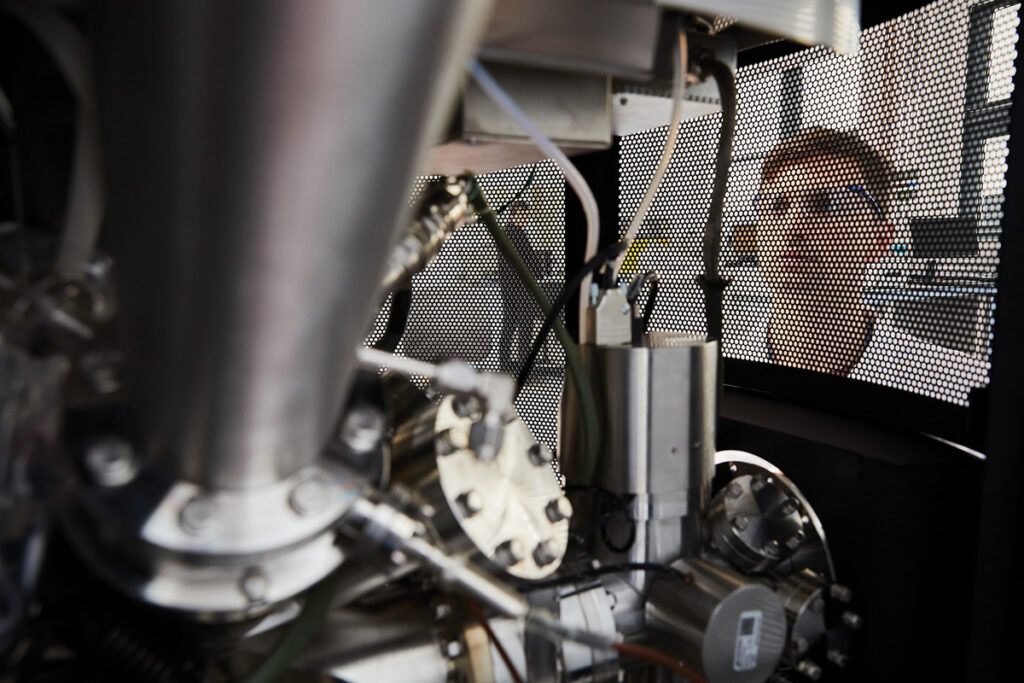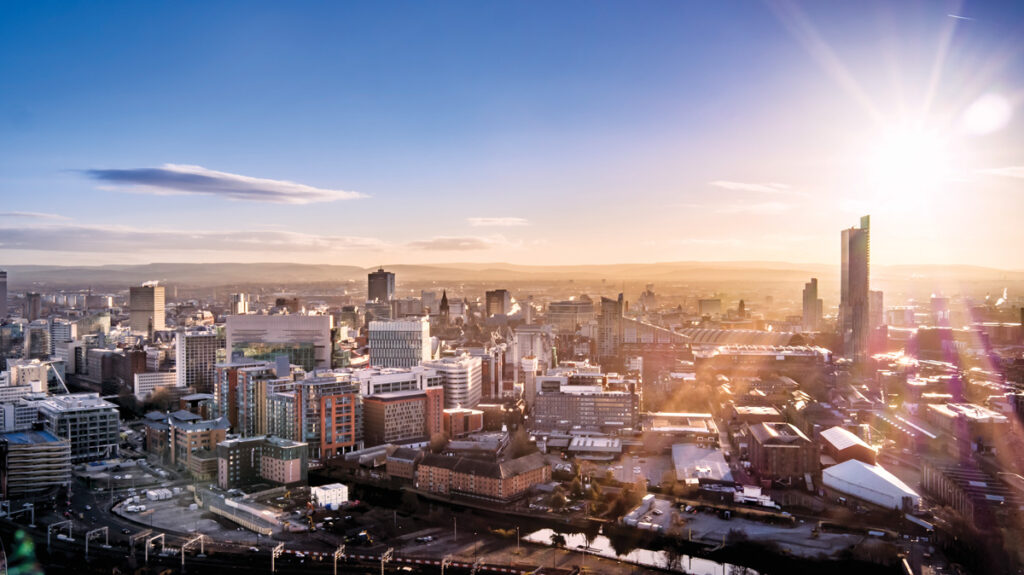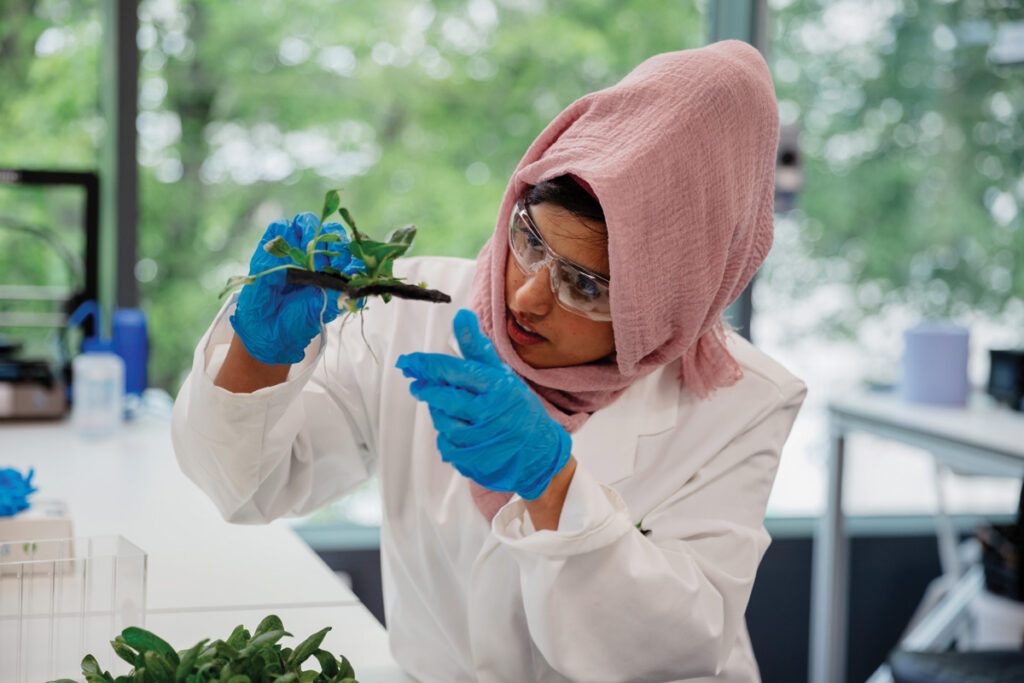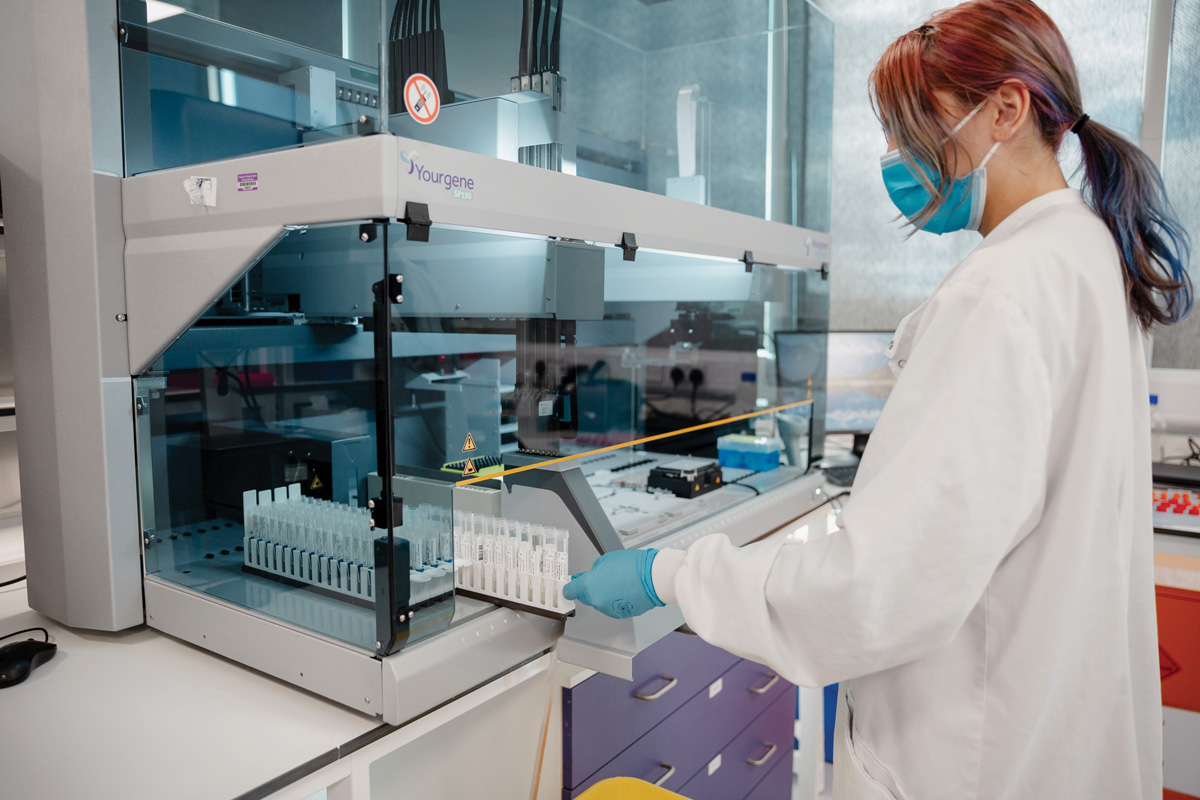Manchester, the city that drove the original Industrial Revolution in the mid-19th century, is powering innovation across global markets and our journey toward a Net Zero future.
With a metropolitan economy worth £62.8 billion (GVA) ($85.6 billion USD), it’s one of the UK’s fastest-growing cities and home to thriving business and tech communities — from life sciences to advanced manufacturing and low carbon.
The goals: to increase global business opportunities, international R&D influence and local prosperity, while leading the way in more climate-friendly solutions. They’ve met all — yet in the most crucial way, the effort is just beginning.
Drivers of Manchester’s stature as a leading international region for innovation must feel like they’ve run an ultramarathon on an obstacle-riddled course — having continued to rapidly build upon their globally leading R&D and innovation capabilities despite the pandemic shutting down the UK for vast periods of time.
Manchester, a city-region of 2.8 million in the north of England, has emerged with a sway of opportunity, investment and expertise from some of the world’s brightest minds. Here are some of the many big stories behind Manchester’s rise up the global manufacturing, R&D, and innovation ladder:

Advanced Materials Of The Future
As home to world-leading institutes, such as the Henry Royce Institute and the Advanced Machinery & Productivity Institute (AMPI), Manchester has grown a strong advanced manufacturing community. There is a significant focus on graphene-based innovation. The super-strong material is a truly Manchester story, with two Manchester scientists awarded the Nobel Prize for Physics for first isolating it in 2004.
There has been huge investment since, with over £300 million ($410.1 billion USD) put into world-class facilities like the National Graphene Institute (NGI) and the Graphene Engineering Innovation Centre (GEIC), a commercialization and pilot production facility for companies to develop new products. These are led by James Baker, CEO, Graphene@Manchester — a world leader on the subject.
From aerospace engineering to digital electronics and biomedicine, the lightweight material can be used in a wide range of applications. Manchester’s investments could transform cities and manufacturing worldwide. Recent breakthroughs include new sustainable construction materials, water filtration technologies, and revolutionary farming systems. Manchester recently hosted the world’s first exterior pour of graphene-enhanced Concretene — using graphene to produce stronger concrete with reduced volumes of material required and potentially longer lifespan of infrastructure, dramatically reducing the carbon footprint of concrete.

Thriving Life Science and Health Tech
The city is a strong supporter of healthcare innovation with a history of firsts here, too — including introducing in vitro fertilization (IVF) treatment to the world and pioneering the first total hip replacement surgery and bionic eye implants.
Today, the innovation continues, and the city is a center of world-leading research with the largest clinical academic campus in Europe. With a £6 billion ($8.2 billion USD) devolved health and social care budget, it is leading innovation for its own healthcare services as well as innovation across the healthcare sector. The University of Manchester, in partnership with Health Innovation Manchester, the National Health Service, and other partners, recently launched the multimillion-pound Christabel Pankhurst Institute to focus on healthcare collaborations with business around digital health and advanced materials.
Work on graphene-enhanced medical and public health innovation is happening, too, including the development of graphene as a medical solution for reconstructive surgery.

Mission To Net Zero Innovation
With plans underway for the city to reach its own 2038 Net Zero target, Manchester is also developing low carbon innovation for global markets. Retrofitting homes with renewable heat and energy storage, installing solar PV and district heat networks across municipal buildings, and increasing sustainable travel methods in the city, are just a start.
For example, as a leader in sustainable and smart packaging, Manchester is well positioned to help the UK meet its goals to make 100% of plastic packaging recyclable, compostable or reusable by 2025. With three-quarters of the world’s Top 25 food and drink companies operating in the region, many skilled graduates from the area’s four leading universities are entering the industry and the University of Salford’s Autonomous Systems and Robotics facility is also playing a role here.
Already named as one of the most innovative cities in the world, Manchester has reinforced its status across tech, manufacturing, financial services, education, life sciences, and healthcare. The city recently introduced Innovation GM — a collaboration with government which aims to create a £7 billion ($9.6 billion USD) economic benefit, 100,000 jobs and a boost to R&D investment.
This is a city with a clear vision for progress and a solid support network for businesses that choose it as a base. The inward investment agency for Manchester — known as MIDAS — provides free support, consultation, and expertise to help businesses who are expanding in the city region or establishing new roots there.
As international attraction to this city continues to strengthen, Manchester’s pace of innovation shows no sign of slowing. ■
To find out more visit investinmanchester.com/powering-innovation or view our innovation video.











